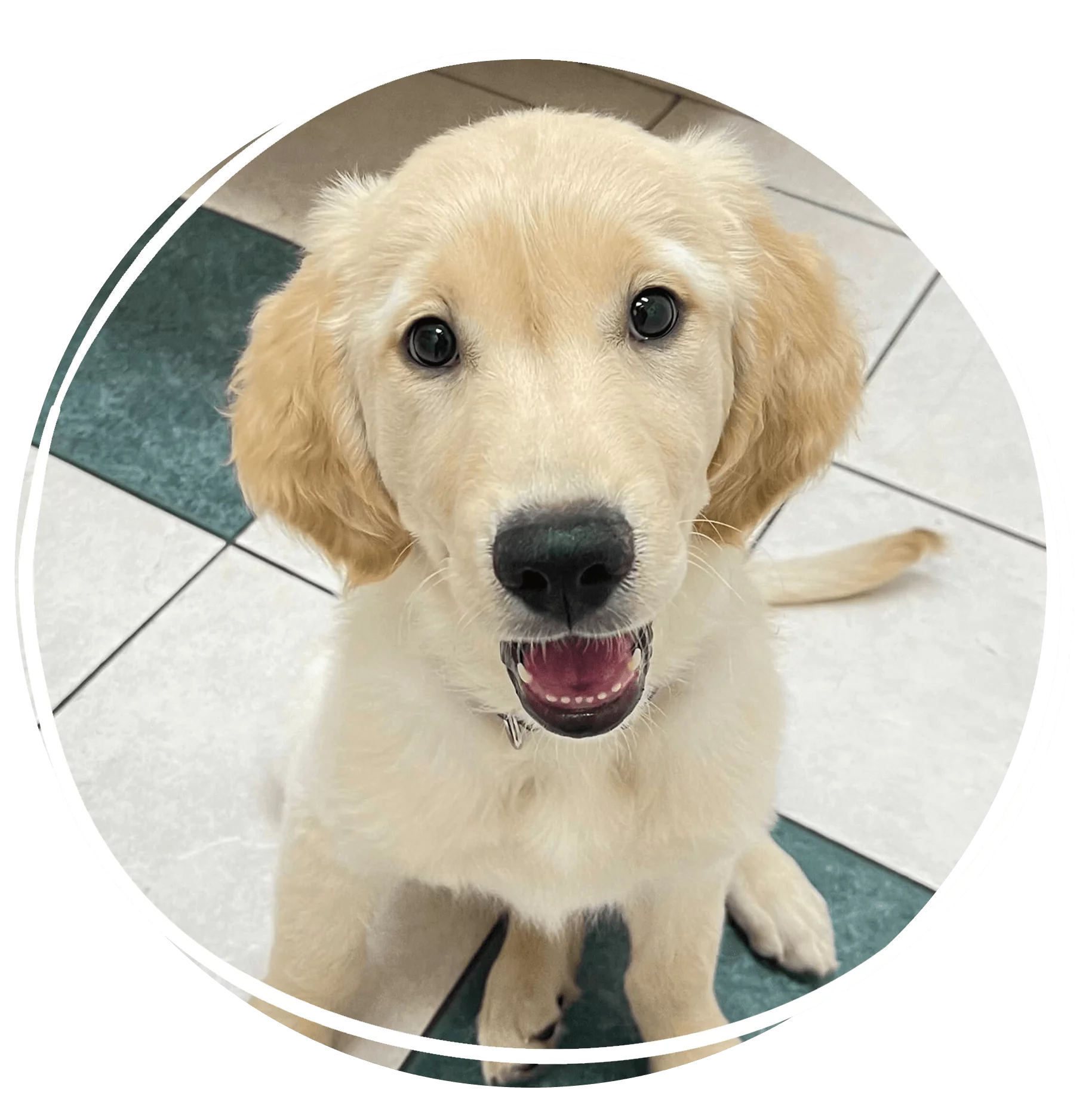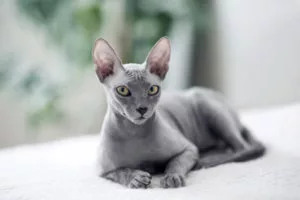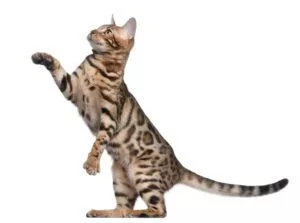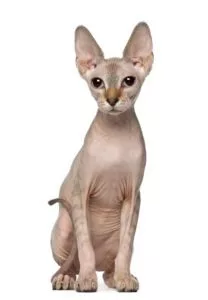
Our Veterinary Blog
5 Cat Breeds That Don’t Shed
An increasing number of people are discovering how wonderful cat ownership can be. Whether it be due to allergies or just personal preference, some people may prefer cats that don’t shed as much. So, what are some cat breeds that don’t shed?
While there is technically no such thing as a completely hypoallergenic cat, some cat breeds shed much less than others. These breeds include the Sphynx, Cornish Rex, Devon Rex, Peterbald, and Bengal. When a cat does not shed as much, there is less likelihood that they will flare up a cat allergy.
In this article, we will be talking about the top five cat breeds that don’t shed much. We will be describing these cat breeds in detail as well as explaining a bit more about hypoallergenic cat breeds. Alright, let’s jump right into it!

Is There Such a Thing as a 100% Hypoallergenic Cat?
No, there is no such thing as a completely hypoallergenic cat. This is because many people with a severe cat allergy will come into contact with the allergen through the cat’s saliva and skin dander. Since cats will always have skin dander and saliva, those with very severe allergies will likely not see any benefit to owning a cat that doesn’t shed very much.
However, those with minor allergies will likely not be bothered as much by a hypoallergenic and low-shedding cat. This is because when cats shed hair, their dried saliva and skin dander goes with it. This could lead to a buildup of these allergen-carrying substances around the house. When a cat doesn’t shed very much, this doesn’t occur.
Cat Breeds That Don’t Shed Much
There are five main cat breeds that don’t really shed. Both the Sphynx and the Peterbald are mostly hairless, so they do not have fur to shed in the first place. Additionally, the Cornish Rex, Devon Rex, and Bengal have unique coats that lead to them not shedding very much.
1) The Sphynx 
The Sphynx is a mostly hairless cat breed that is known to be loyal, playful, and affectionate. In fact, some people even claim that their Sphynx cat is more dog-like than cat-like. Sphynx cats will either be entirely bald or have a thin layer of non-shedding, peach fuzz-like hair. This gives them a silky feeling to the touch.
Sphynx cats are great for families because they tend to behave well around children. They also tend to do well around other cats and well-behaved dogs. The only downside to the Sphynx is that they are rarer than the average cat breed. This means that you will likely need to get a Sphynx cat from a breeder. Be sure to do your homework to ensure that a cat breeder is reputable before getting a kitten from them.
2) The Cornish Rex
The first Cornish Rex kitten was born in Cornwall, England in the 1950s. What made this kitten unique was their fine, curly coat. This is what sets the Cornish Rex breed apart from others today. A mutation on one of the genes that determine a cat’s fur thickness is responsible for this unique coat type.
The Cornish Rex is a small cat that tends to weigh less than eight pounds. However, you shouldn’t let their small size fool you. They are still a very energetic cat that loves to run, jump, and play. The Cornish Rex also loves to climb, so make sure you have plenty of safe climbing spaces for them.
3) The Devon Rex
Another curly-coated kitten was born in Devon, England shortly after the first Cornish Rex. Though the Devon Rex has a unique curly coat that is very similar to that of the Cornish Rex, they are a unique and distinct cat breed. In fact, it has been proven that the curly coat on the Devon Rex is caused by a genetic mutation that is completely unique and separate from the mutation that is responsible for the Cornish Rex’s curly coat.
The Devon Rex is also a small cat that weighs less than eight pounds on average. They also love to jump and climb, so having a cat tree and some other spaces for them to perch on is a must when owning a Devon Rex. However, the Devon Rex also has a calm and cuddly side to them, and they love laying in the sun.
4) The Peterbald
The Peterbald cat is technically a cross between the Sphynx and the Oriental Shorthair. Like the Sphynx, the Peterbald is mostly hairless, but they can also have some patches of very fine and short fur on their heads and bodies. The Peterbald is a larger cat breed that tends to weigh around 14 pounds.
The Peterbald is an energetic cat that is known to be well suited for homes with children, other cats, and even dogs. They are very playful and sociable, so make sure that you have plenty of time to hang out with your Peterbald and some toys on hand to entertain them. Peterbalds are also incredibly intelligent and trainable, so you can even teach them some tricks!
5) The Bengal

This cat was originally a cross between the domestic Tabby cat and the wild Asian Leopard Cat. However, Bengals today have mostly domestic genes, making them just a unique breed of domestic house cat. One of the main benefits of this breed is their short, silky coats. Not only does the Bengal have a beautiful coat with wild-looking patterns, but they are also low shedding.
Bengal cats are very active and athletic. This means that they love to run, jump, and climb. Bengals also enjoy games that involve them chasing things. Intelligent and trainable, they are one of the best cat breeds to get if you would like a cat that can be leash trained.
Conclusion
If you suffer from cat allergies and are looking for a hairless or low-shed cat breed, this list is a great place to start. It is best to get your cat from a reputable breeder, and it may be a good idea to consult with a veterinarian before adding feline companion to your family.
When you do find the right cat for you and your family, Lakeland Animal Clinic in Lakeland, FL is here to help care for your fur baby. Reach out at (863) 688-3338 or book an appointment online. Are you looking for a veterinary career? Our team at Ascend Vets is hiring! Visit our careers page to learn more about veterinary career openings.
Recent Posts
About Us
Family is family, whether it has two legs or four. At Lakeland Animal Clinic, we've spent the last 40 years healing and caring for your pets. As a family-operated practice, we know that family is about more than simply being related. Animals give us the ability to develop strong bonds and feel great compassion for a fellow living creature.

